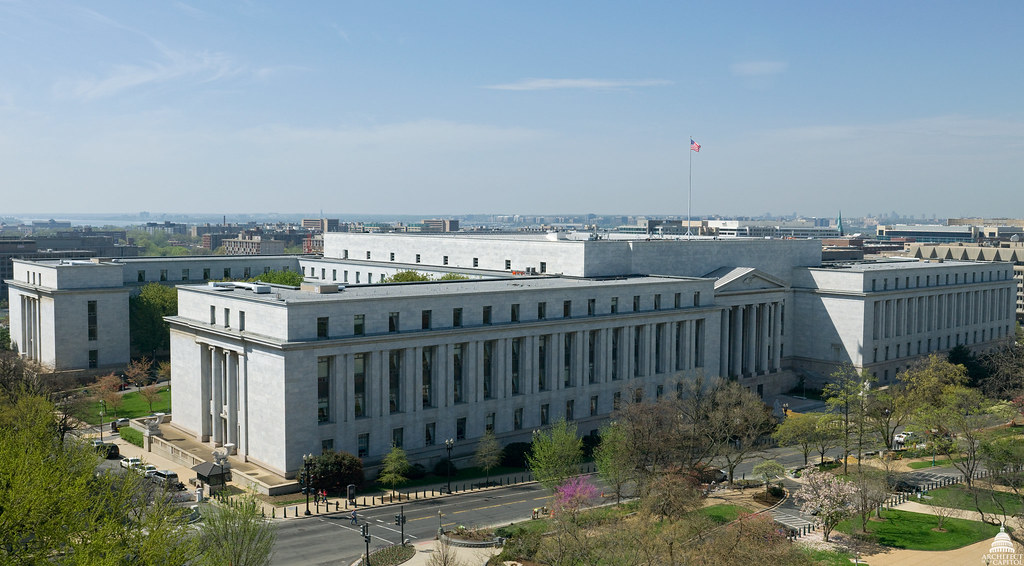Summary: The House Judiciary Committee’s Proposed Changes to FISA
On Monday, Feb. 24, the House Judiciary Committee introduced legislation that would amend and reauthorize the Foreign Intelligence Surveillance Act (FISA).

Published by The Lawfare Institute
in Cooperation With

On Monday, Feb. 24, the House Judiciary Committee introduced legislation that would amend and reauthorize the Foreign Intelligence Surveillance Act (FISA). It was scheduled to mark up the draft in a Wednesday committee meeting, before delaying the meeting after a last-minute effort by Rep. Zoe Lofgren to introduce more sweeping privacy reforms. The draft changes follow a statement by Rep. Jerrold Nadler, a Democrat and chairman of the committee, that legislation to reauthorize FISA must address problems raised in the Justice Department inspector general’s report on the FBI’s counterintelligence investigation into the Trump campaign in connection with the 2016 election. Republicans on the committee argued that the draft bill does not go far enough to address those concerns while also making it more difficult to combat terrorism. The key amendments to the law are explained below.
FISA Business Records
Perhaps the most significant change introduced by the draft reauthorization bill is its repeal of the National Security Agency’s (NSA’s) legal authority to collect data about telephone calls and text messages on an ongoing basis through its call detail records (CDR) program. The CDR program permits the government to collect call records if it can demonstrate to the Foreign Intelligence Surveillance Court that a particular individual, account, personal device or similar “specific indentifier” has a sufficient nexus to a foreign power and is relevant to a foreign intelligence investigation or an investigation to protect against international terrorism or “clandestine intelligence activities.” While the legislation would preserve the government’s authority to apply to the Foreign Intelligence Surveillance Court for orders to compel telecommunications companies to produce call records retrospectively, the bill would repeal its authority to order their production on an ongoing basis. That change reflects the NSA’s own indefinite suspension of the CDR program in 2019, in response to technical issues that caused telecommunications providers to produce more records than the NSA had authority to collect.
In addition to terminating legal authority for CDR collection on an ongoing basis, the bill would require the government to promptly destroy any call detail records that it does not have legal authority to hold. It would require the NSA to eventually destroy all call detail records it obtains through production orders.
The draft bill would also prohibit the government from applying for an order for production of tangible things relating to a foreign intelligence investigation if the compelled production of such a thing would require a warrant for law enforcement purposes. It clarifies that information obtained or derived from the production of tangible things pursuant to an investigation will be deemed to have been acquired through electronic surveillance. It defines an “aggrieved person” as one who is the target of a foreign intelligence investigation authorized by FISA or if the activities or communications of the person are described in any tangible thing collected during such an investigation.
Foreign Intelligence Surveillance Court and Court of Review
In line with concerns expressed by Nadler regarding problems described in the inspector general’s report, the bill introduces reforms that could bring more of the activities of the the Foreign Intelligence Surveillance Court and the Foreign Intelligence Surveillance Court of Review into public view. The draft bill would require the director of national intelligence to conduct a declassification review of and publicly release the courts’ decisions, orders or opinions that result from a proceeding in which an amicus curiae has been appointed. It would require the same for those cases that pose a significant construction or interpretation of law. The draft bill requires the declassification review and public release within 180 days after the court issues the decision, order or opinion in question.
The draft bill also seeks to improve decision-making in the Foreign Intelligence Surveillance Court and the Foreign Intelligence Surveillance Court of Review by expanding the role of amici curiae in assisting the courts in considering applications for an order or review. In addition to requiring the appointment of an amicus curiae in cases that present a novel or significant interpretation of the law, according to the draft bill amici shall be appointed if the matter presents significant concerns with respect to the activities of a U.S. person that are protected by the First Amendment, unless the court issues a finding that such an appointment is not appropriate. In proceedings in which an amicus has been appointed, the amicus will receive access to information and supporting materials including the petition, motion and relevant legal precedents outright, rather than conditioned on the court’s determination that such access is relevant to the amicus’s duties. Under the draft bill, instead of conditioning an amicus’s access to information on his or her ability to meet the vague standard that that access is “consistent with the national security of the United States,” the amicus need only be eligible for access to classified information.
Following issuance of an order by the Foreign Intelligence Surveillance Court, the draft bill would permit an amicus to petition the Foreign Intelligence Surveillance Court of Review for review of questions of law. An amicus could also petition the Foreign Intelligence Surveillance Court of Review to certify questions of law for review by the U.S. Supreme Court.
Finally, the draft bill would require the director of the Administrative Office of the U.S. Courts to annually submit to the House and Senate Intelligence and Judiciary committees a report on the number of certifications by the Foreign Intelligence Surveillance Court of Review and the number of requests to certify a question made by amici to the Court of Review.
Privacy and Civil Liberties Oversight Board
The draft bill also introduces a number of changes to membership provisions governing the Privacy and Civil Liberties Oversight Board, the independent agency within the executive branch that provides oversight and advice relating to the government’s efforts to combat terrorism in order to ensure that privacy and civil liberties are protected. The bill authorizes all members to serve full six-year terms beginning at their date of appointment, rather than limiting members appointed after the commencement of a term to serving for the remainder of the term. It also allows members to be reappointed to one or more terms, provides for vacancies to be filled in the manner that original appointments are made, and permits members to continue to serve on the Board at the expiration of their term until a successor is appointed and qualified.
The bill also requires the Privacy and Civil Liberties Oversight Board, within one year of the bill’s enactment, to make publicly available, to the extent practicable, a report on the extent to which activities protected by the First Amendment and protected classes such as race, ethnicity, national origin, religious affiliation, sex and other protected characteristics are used to support targeting decisions for foreign intelligence collection under FISA. The report must include an assessment of the impact of the targeting on protected activities and classes.
Mandatory Reporting
Under existing law, the director of national intelligence must report the number of search terms the government uses and the number of queries it makes concerning a known U.S. person in its analysis of records. The draft bill would extend those requirements to include the number of search terms and queries reasonably likely to identify a U.S. person. The legislation would also remove a limited reporting exception that currently applies to the FBI.
Sunsets
The bill would reauthorize the provisions of FISA set to expire on March 15, 2020, through Dec. 1, 2023.




-final.png?sfvrsn=b70826ae_3)
